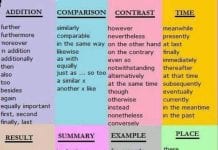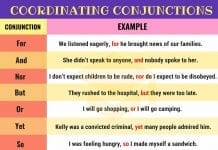SHOULD and OUGHT TO are both modal verbs.
In most cases, SHOULD and OUGHT TO are used interchangeably today. Both SHOULD and OUGHT TO are used to express advice, obligation, or duty.
However, there is a slight difference in meaning.
SHOULD
is used when we want to express our subjective opinion.
In other words, ‘what I think is best for you to do’.
- You should call your mother more often.
- He should apologize before she stops talking to him.
OUGHT TO
is used when we want to express an objective truth.
In other words, ‘what is necessary, and cannot be avoided’
That’s why we usually use OUGHT TO when we are talking about laws, duties, and regulations.
- They ought to follow the school’s policy, or they will get expelled.
- According to this road sign, they ought to stop here.
I hope it’s clear now 🙂
P.S. Remember that OUGHT is always followed by to + infinitive.
Have to
Have to is somewhat different from ought to and should. Both ought to and should denote something that you would be suggested to follow.
For example:
- You should always do your homework before bed.
Here, you should means that it would be good to do your homework before bed because in the morning you might be tired. Ought to and should are options, and depending on your choices you might not follow them.
Have to, however, is an obligation. Have to means that there is no way around following what being said or proposed. The most famous sentence containing have to is:
- You have to follow the rules.
Here we can see how have to is used to denote a level of obligation, and how it is connected to rules and regulations. Now, of course, you can choose to not follow anything you have to do. However, just using have to draws attention to the fact that the action is regulated.
Must
Have to is closely associated with must, and they are near-synonyms. When you have to do something, it’s very much the same as if you must do something.
More with Should
- The difference between SHOULD and WOULD
- What is the difference between MUST and SHOULD
- What time should I come over? or At what time should I come over?
- ___ a team of top researchers works in this university? Should I use “Do” or “Does” in this question? Why should the teacher take into consideration the individual needs, learning styles, and personalities of introverts in making classroom strategies?
- What should I choose? He has broken his arm.
- You shouldn’t have done that it was very think of you, (think)
More with Ought to
- Laugh When You CAN, Apologize When you SHOULD, and Let Go Of What You CAN’T Change [Quote]
- When should I add ‘s’ to nouns?
- You shouldn’t have done that it was very think of you, (think)“You should see a doctor.” What tense is it?
- When should “need not to” and “need not” without “to” be used?
- In what order of topics should I study English grammar?
- Difference between ought to and should!
- Difference between Ought To and Should 👉😉🙌Helpful synonym. 12 Synonyms for Helpful: Accommodating, Considerate, Thoughtful,…Simple Past Quiz: 20 Quiz for practicing SIMPLE PAST tense
More with Have to
- I have to anchor in my school for an event. Can you give me some tips and instruct me how should I do it well?
- HAVE TO & DON’T HAVE TO
- “Would you like to keep quiet about me leaving until I have told the boss”, is the sentence correct?
- What is the meaning of “may have to be”?
- I Had To / I Have To or I Must? What is the difference?
- We say: ‘I have A cold’. But we can’t count cold so why we use ‘a’?
- Hi. I was wondering if any of the following words have a prefix: create, surface, climbs, waterfalls.
- 🎲 Never Have I Ever Questions 👉 for Kids 👉Funny 👉Dirty
More with Must
- Does this sentence make sense? We must first acknowledge the inadequacy of such system before proceeding
- What is the difference between Must and Might?
- Difference between Need & Must
- 20 Movie Idioms: Break a leg, The show must go on, Kick off, Popcorn movie, Sell out
- 20 Movie Idioms: Break a leg, The show must go on, Kick off, Popcorn movie, Sell out38 must-know Phrases about Life
- Is the sentence “You must help me prepare lunch” an imperative sentence?
- What is the difference between MUST and SHOULD?
- Adverbs of Affirmation and Negation Examples & Quiz
- 100+ Words of Encouragement 🙌😃❤️ Other ways to say Well Done!
- What Trump Impeachment means? WTF happened?!
























The word “sign” is misspelled in the second sentence example under the use of the words “ought to.” I thought you should know.
Thank you so much!